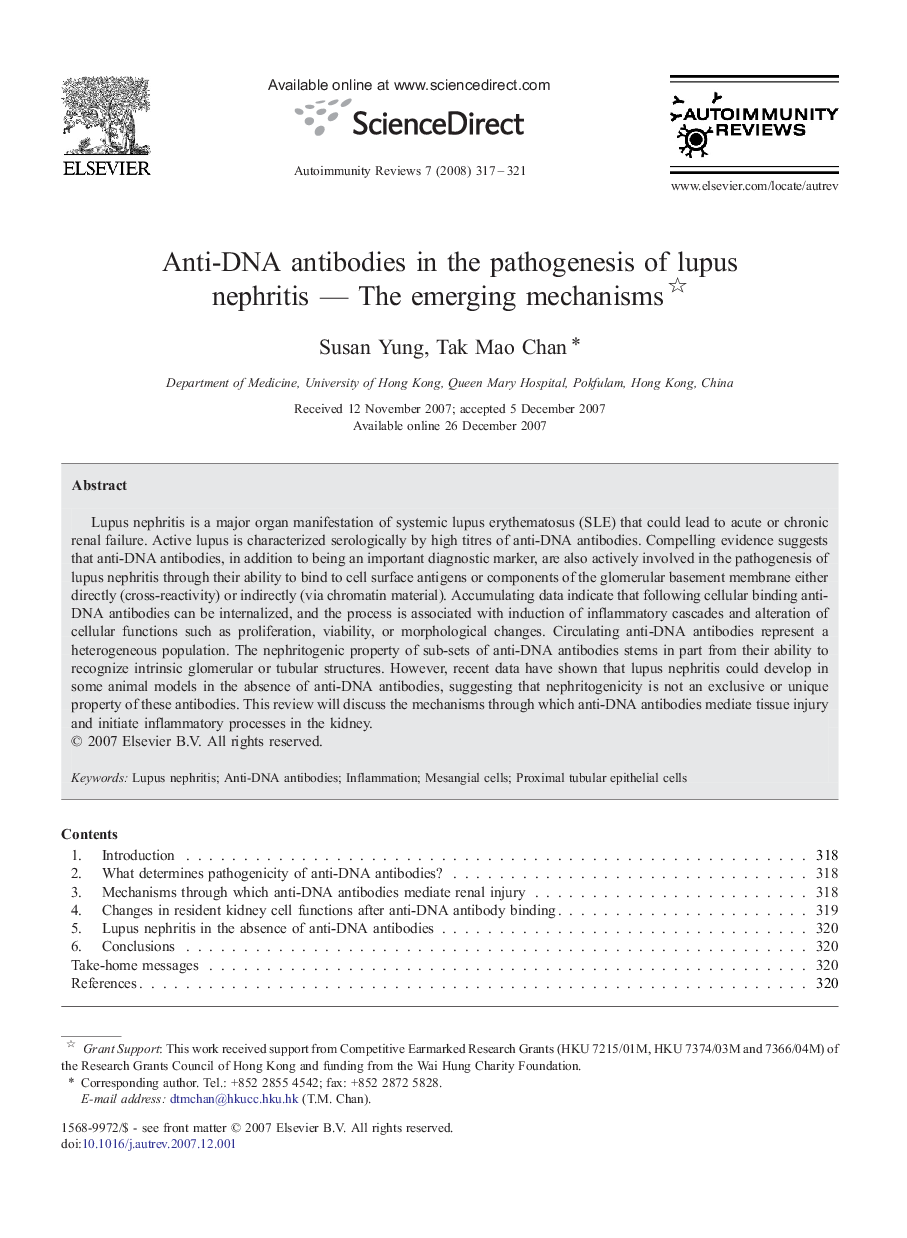| کد مقاله | کد نشریه | سال انتشار | مقاله انگلیسی | نسخه تمام متن |
|---|---|---|---|---|
| 3342461 | 1214287 | 2008 | 5 صفحه PDF | دانلود رایگان |

Lupus nephritis is a major organ manifestation of systemic lupus erythematosus (SLE) that could lead to acute or chronic renal failure. Active lupus is characterized serologically by high titres of anti-DNA antibodies. Compelling evidence suggests that anti-DNA antibodies, in addition to being an important diagnostic marker, are also actively involved in the pathogenesis of lupus nephritis through their ability to bind to cell surface antigens or components of the glomerular basement membrane either directly (cross-reactivity) or indirectly (via chromatin material). Accumulating data indicate that following cellular binding anti-DNA antibodies can be internalized, and the process is associated with induction of inflammatory cascades and alteration of cellular functions such as proliferation, viability, or morphological changes. Circulating anti-DNA antibodies represent a heterogeneous population. The nephritogenic property of sub-sets of anti-DNA antibodies stems in part from their ability to recognize intrinsic glomerular or tubular structures. However, recent data have shown that lupus nephritis could develop in some animal models in the absence of anti-DNA antibodies, suggesting that nephritogenicity is not an exclusive or unique property of these antibodies. This review will discuss the mechanisms through which anti-DNA antibodies mediate tissue injury and initiate inflammatory processes in the kidney.
Journal: Autoimmunity Reviews - Volume 7, Issue 4, February 2008, Pages 317–321